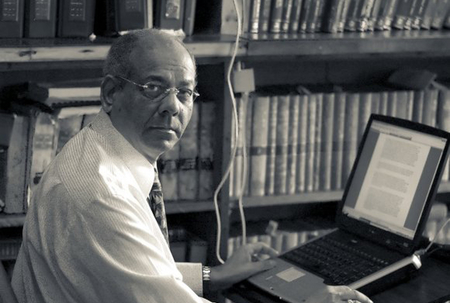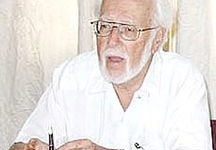PHANTOM VOTES
BY: RALPH RAMKARRAN
Section 84 of the Representation of the People Act is quite clear. It requires the Returning Officer, Clairmont Mingo, in the presence of persons entitled to be present, to “ascertain the total votes cast in favour of each list in the district by adding up the votes recorded in favour of the list in accordance with the Statements of Poll, and thereupon publicly declare the votes recorded for each list of candidates.” This procedure to “ascertain the total votes cast” for Region 4 “in accordance with the Statements of Poll” was not followed but the Returning Officer declared phantom votes anyway, which showed the APNU+AFC winning the elections by about 7,000 of the said phantom votes. Statements of Poll for Region 4, signed by Presiding Officers, released by the Leader of the Opposition are claimed to show that the PPP won the elections by some 17,000 votes.
Upon the declaration, which no one present in the building was aware of or heard, the Returning Officer disappeared. So did the Chief Election Officer, Keith Lowenfield. The Chair of the Commission, Justice Claudette Singh, a former judge of distinction, who displayed exceptional courage in accepting the appointment, and who said upon being sworn in, that “I will not sell my integrity for all the oil in Guyana,” has been incommunicado in the Region 4 offices at High and Hadfield Streets and elsewhere, not having said or done anything publicly to prevent this blatant violation of the law by one of her senior officers.
An injunction ordered by the Court on Thursday, while the drama was playing out, prevents the Commission from declaring the final election results, until the results for Region 4 are verified. The declaration of the entire results of the elections, prepared by the Chief Election Officer and approved by the Elections Commission, is a pre-requisite for the swearing in of the President. Having regard to the pronouncement of Justice Claudette Singh about her integrity quoted above, it is expected that she will reject the declaration of the Region 4 results as not being credible, on the ground that it did not comply with section 84, which is the united position of the international community and international observers, as well as there being an injunction in place.
However, in a statement on Friday evening, Mr. Joe Harmon said that the reason for the delay by the Commission in approving the report of the Chief Election Officer is the injunction which, he indicated, will be discharged. Mr. Harmon, displaying superior and advance knowledge of how the Elections Commission and the Court will decide, implies that the Commission will accept the validity of the declaration of Region 4, notwithstanding its clear illegality.
It is too difficult for me to contemplate the above as well as Mr. Kit Nascimento’s assertion in a letter yesterday in SN, that from all accounts Justice Claudette Singh has rejected the international community’s appeal to have Elections Commission respect the rule of law and return to the process of verification of votes cast in Region 4. All this is subject to what happened in Court earlier today which was not available at the time of writing.
The APNU+AFC, aided by elements in the Elections Commission, seems determined to approbate the violation of Guyana’s elections laws, and thereby impose a dictatorship on Guyana. Many Guyanese, familiar with the history of the PNC from 1968 to 1985 were fearful that this would happen. If President Granger orchestrates a swearing in of himself as President and appoints a government without credible election results, whether a declaration is made or not by the Elections Commission, he risks inviting sanctions on Guyana and government officials, including on himself, by the US and EU as well as potential expulsion from the Commonwealth. He would have already known this and, if he proceeds, is clearly prepared for it.
The root cause for this crisis is the existence of two large ethnic blocs which seek political dominance through one or the other of two political parties, which they support. The political instability and periodic social disharmony, seething at election time, but subdued otherwise, are caused by the hidden struggle for ethno-political dominance in Guyana. This political instability will continue, and lead to perpetual electoral malpractices, until the issue of ethno-political dominance is resolved. This issue has been before the Guyanese people at times of crises in the early 1960s, the late 1970s, late 1980s, mid-1990s and early 2000s. So it is not that Guyanese are unaware of the political debates that have occurred around the matter. But absent from the debates has been political leadership because political opportunism, that is, the drive for partisan political power, has been at centre stage.
Whichever political party secures control of Guyana, there is every likelihood that its period of governance will be characterized by ethnic resistance, unrest, dissatisfaction, accusations of marginalization and maybe violence. Guyana will never have the opportunity of developing without political tension and instability unless a political solution is found for its ethno-political rivalry.






















